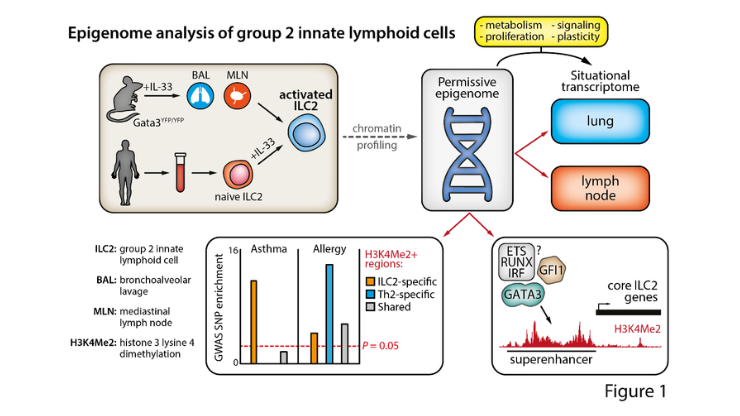About our research group/lab
Our research
Our overarching goal is to decipher the molecular mechanisms that control immune cell phenotypes in both homeostasis and disease to identify targets for therapeutic intervention. We work towards this goal by employing state-of-the-art genomics technology to study gene regulatory mechanisms in mouse and human immune cells. Special emphasis is placed on the identification and characterization of gene regulatory elements and transcription factors critical for lymphocyte dysfunction in asthma, autoimmunity and cancer. Disease-relevant cell populations are obtained from mouse models that mimic human immune disorders and patient material from the clinic or collaborations with nearby hospitals.

Our projects
- Functional epigenomics of memory T cells
- Aim is to facilitate the identification of gene regulatory networks that can be targeted in human diseases in which dysfunctional memory T cells play a pivotal role (e.g. allergy, autoimmunity and cancer).
- Molecular immunology of the lung
- Goal is to decipher the molecular mechanisms that control immune cell phenotypes in both homeostasis and disease to identify targets for therapeutic intervention.